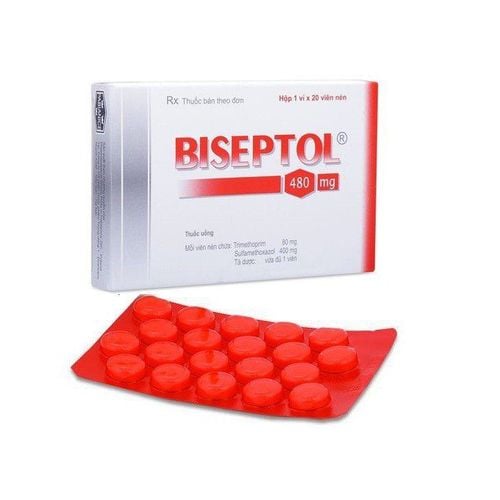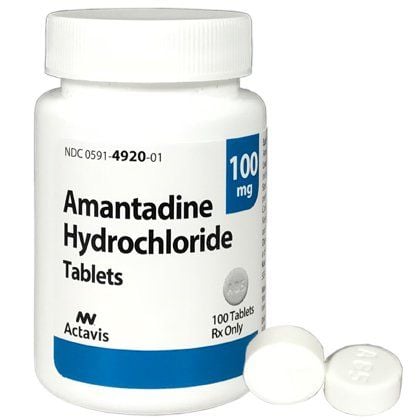This is an automatically translated article.
The article is professionally consulted by Master, Doctor Nguyen Minh Tuan - Pediatrician - Pediatrics - Neonatology - Vinmec Danang International General HospitalIn the first days of school, children often face many obstacles due to changes in schools, teachers, friends as well as eating and sleeping habits that are very different from those at home. One of the problems that most parents worry about is getting sick when they first go to school. That means parents should prepare preventive measures for back-to-school illnesses for their children.
Common back-to-school diseases in children include:
1. Flu
Parents who have a new child at school cannot help but feel insecure because the child is sick when they first go to school, and they are normal at home. There are even cases where children go to school for one day but take sick leave for a whole week, making going back to class an obsession of parents and children.People often think that winter is the flu season, but in fact, autumn is when the flu begins. The cooler temperatures of the fall, back to school season, often make the flu virus last longer. Influenza is an acute infectious disease, appearing all year round and appearing more when the weather changes seasons, mainly caused by influenza virus strains.
Symptoms of this seasonal illness in children often have a sudden onset, with fever, cough, sore throat, runny or stuffy nose, body aches, headache, chills and fatigue. Some children also have vomiting and diarrhea. Most children clear their fever and other symptoms within a week, but flu can also cause serious illness and death in high-risk groups. The incubation period is 2-3 days, the disease spreads very quickly and easily through small particles when an infected person coughs, shoots into the air, then infects the nose and throat.
According to WHO, flu vaccination reduces flu-related illnesses by 60%, and flu deaths by 70-80%. Even healthy people, getting a flu shot reduces the risk of getting sick by 70-90%. The U.S. Centers for Disease Control and Prevention (CDC) recommends the use of influenza vaccines and recombinant influenza vaccines. In addition, parents also need to ensure personal hygiene for their children, regularly wash their hands with soap, clean their children's nose and throat daily with salt water, keep their bodies warm, and feed their children with nutritious foods. to improve fitness. If possible, give your child a flu shot to prevent illness. When children have symptoms of cough, fever, runny nose, headache, fatigue, they need to go to a medical facility for timely examination and treatment.
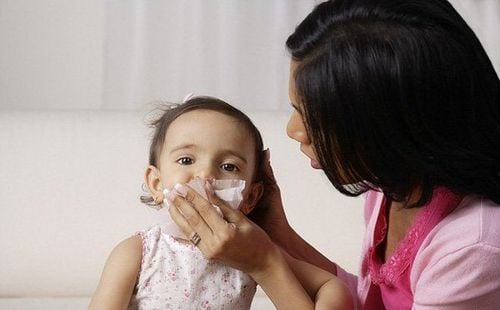
Cảm cúm là bệnh thường gặp trong mùa tựu trường
2. Sore throat
The immune system of the child's body is often weakened more in the autumn, so it is easy to get a sore throat. Moreover, changes in temperature, air and living and learning environments can cause pathogens to thrive, overcoming the body's immune barrier.Usually a sore throat is caused by a viral or bacterial infection with symptoms such as: runny nose, itchy and red eyes, hoarse voice, sore throat, difficulty breathing, fever. When your child has a sore throat for more than 3 days, you should talk to your doctor for timely diagnosis and intervention.
3. Diarrhea
In addition to illness, fever and flu, diarrhea is also a common illness in children starting kindergarten. Due to the change in living environment, shared eating habits, and common activities in class, children are at risk of contracting viruses that cause diarrhea. If parents find that their child has more than 3 bowel movements a day, loose and watery stools, then the child has diarrhea.Diarrhea is an acute disease that easily causes dehydration, especially in young children. Diarrhea is also a leading cause of anorexia and malnutrition in children.
In most cases, parents can treat diarrhea in children at home by rehydrating (eating porridge or soup...) and using medicine as prescribed by the doctor. When detecting that a child refuses to breastfeed, refuses to eat, is tired, thirsty, vomits continuously, has fever, bloody stools, lethargy, convulsions, etc., the child should be hospitalized immediately.
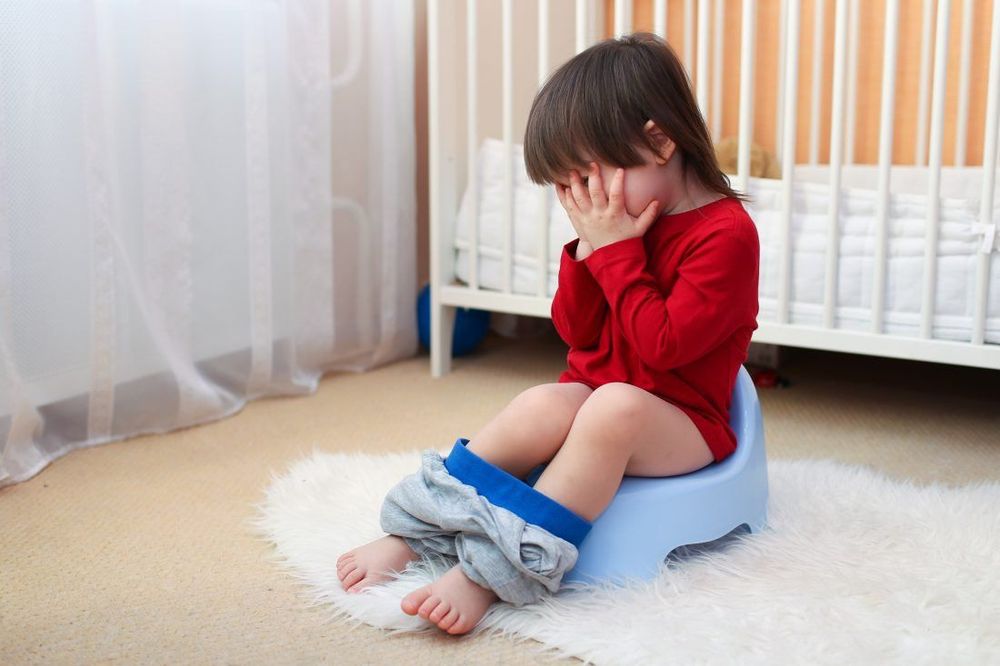
Ngoài ốm, sốt và cảm cúm, tiêu chảy cũng là bệnh thường gặp ở trẻ bắt đầu đi học mẫu giáo
4. Hand - foot - mouth disease
According to doctors, from 6 months to about 3-5 years old is the period when children's resistance is weakest and most susceptible to disease. It is normal for children to come to class sick. However, parents should note that hand, foot and mouth disease is a dangerous infectious disease in young children, the disease often occurs all year round, but tends to increase in number of cases in September, October, and November, coinciding with the time children start. attend.This is an acute infectious disease caused by a virus belonging to the Enterovirus group, transmitted from person to person, from sick children to healthy children through direct or indirect contact with utensils and objects contaminated with viruses from nasopharyngeal secretions. , the blisters burst.
The disease usually presents with fever, sore throat, sores in the mouth or tongue, especially blisters on the palms, feet, knees, buttocks. The disease mainly occurs in children under 10 years of age, usually in children under 5 years of age. There is currently no specific treatment, so children should drink a lot of water and can take medication to treat symptoms such as fever reducer, pain reliever and vitamins.
Kindergarten and child care schools must regularly wash the hands of children and caregivers with soap and running water several times a day, especially before preparing food and after using the toilet, changing diapers for children. Regularly clean daily contact surfaces and objects such as toys and school supplies with soap or common detergents. Keep sick children out of school within 10 days of illness onset.
5. General prevention rules for children
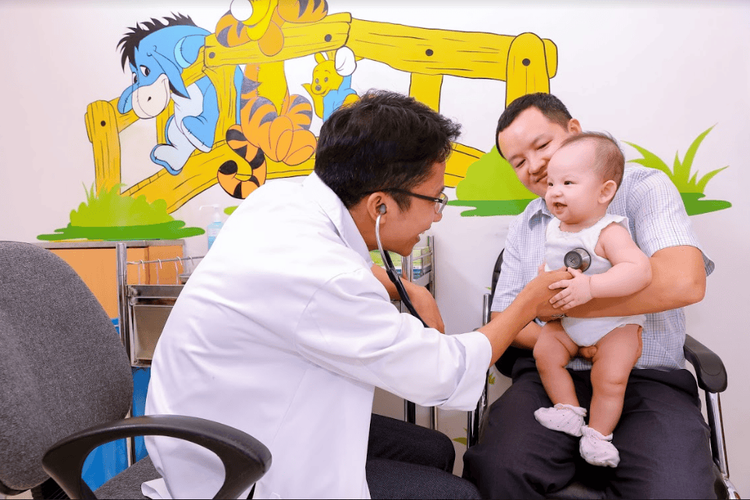
Đảm bảo con đã tiêm phòng đầy đủ và đúng lịch để phòng ngừa các bệnh mùa tựu trường
In addition to zinc, parents also need to supplement their children with other important vitamins and minerals such as lysine, chromium, B vitamins,... errands.
Please regularly visit Vinmec.com website and update useful information to take care of your baby and family.








